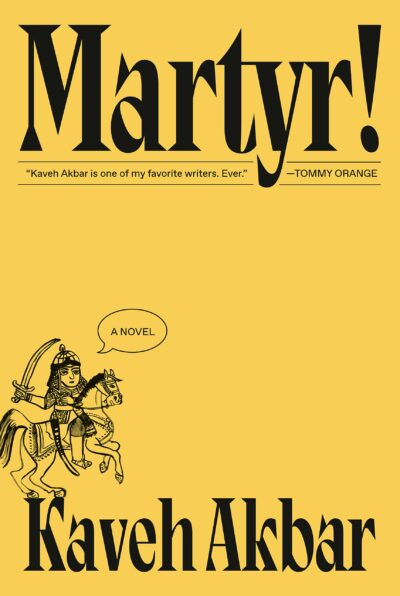44 Results in the "Non-Fiction" category
Biography & Memoir (398)
Business & Finance (25)
Children’s Fiction (4)
Education & Learning (4)
Fantasy (195)
Fiction (1909)
Health & Wellness (20)
Historical Fiction (356)
Horror (57)
Literary Fiction (455)
Novel (235)
Others (1)
Philosophy (58)
Poetry (59)
Politics & History (84)
posts (1)
Psychology (46)
Romance Novel (163)
Science & Technology (28)
Science Fiction (63)
Self-Help & Personal Development (99)
The Ultimate Book Lists (1)
Thriller / Mystery (526)
Travel & Adventure (2)
True Crime (53)
view (101)
Young Adult (95)
-
Chapter
Orkideh
 Orkideh begins with the narrator deeply contemplating their relationship with happiness and its fleeting nature. They candidly admit that joy has not been a constant or abundant presence in their life. Instead, the narrator notes that there were isolated moments of genuine joy, but these moments were brief and seemed to pass more quickly than expected. Reflecting on this, the narrator considers the idea that each person may only have a limited amount of joy to experience throughout their lives. In their…
Orkideh begins with the narrator deeply contemplating their relationship with happiness and its fleeting nature. They candidly admit that joy has not been a constant or abundant presence in their life. Instead, the narrator notes that there were isolated moments of genuine joy, but these moments were brief and seemed to pass more quickly than expected. Reflecting on this, the narrator considers the idea that each person may only have a limited amount of joy to experience throughout their lives. In their…-
245.7 K • Ongoing
-
-
Chapter
Orkideh
 Orkideh's story is a deeply emotional exploration of grace, death, and identity through the lens of Roya Shams, who reflects on both her painful past and the unearned gift of life she finds herself carrying after surviving a tragic plane crash. The crash, caused by the USS Vincennes misidentifying her flight as a threat, took away so many lives, including that of her lover, Leila. In the aftermath, Roya is left to reckon with her survival and the sense of grace she feels, wondering why she was granted life…
Orkideh's story is a deeply emotional exploration of grace, death, and identity through the lens of Roya Shams, who reflects on both her painful past and the unearned gift of life she finds herself carrying after surviving a tragic plane crash. The crash, caused by the USS Vincennes misidentifying her flight as a threat, took away so many lives, including that of her lover, Leila. In the aftermath, Roya is left to reckon with her survival and the sense of grace she feels, wondering why she was granted life…-
245.7 K • Ongoing
-
-
Chapter
[I believe that…]
![[I believe that…] Cover](https://summaryer.com/wp-content/uploads/2025/01/139400713-400x596.jpg) I believe that the chapter opens with a compelling and forceful statement made by William J. Crow Jr., Chairman of the Joint Chiefs of Staff, who asserts that Iran is directly responsible for a tragic event, highlighting the country’s role as the immediate cause of the disaster. His declaration carries a heavy weight, underscoring the seriousness of the incident and the complex geopolitical ramifications that it brings. Crow’s assertion reflects the broader tensions that continue to persist in…
I believe that the chapter opens with a compelling and forceful statement made by William J. Crow Jr., Chairman of the Joint Chiefs of Staff, who asserts that Iran is directly responsible for a tragic event, highlighting the country’s role as the immediate cause of the disaster. His declaration carries a heavy weight, underscoring the seriousness of the incident and the complex geopolitical ramifications that it brings. Crow’s assertion reflects the broader tensions that continue to persist in…-
245.7 K • Ongoing
-
-
Chapter
[There are no…]
![[There are no…] Cover](https://summaryer.com/wp-content/uploads/2025/01/139400713-400x596.jpg) There are no flawless military operations, as pointed out by William J. Crow Jr., Chairman of the United States Joint Chiefs of Staff, in his statement from August 5, 1988. In this declaration, Crow highlights the complexity and unpredictable nature of military engagements, emphasizing that even when missions are successful, they are not without imperfections. This assertion challenges the common belief that military success signifies an absence of error. It reveals that all military operations, regardless…
There are no flawless military operations, as pointed out by William J. Crow Jr., Chairman of the United States Joint Chiefs of Staff, in his statement from August 5, 1988. In this declaration, Crow highlights the complexity and unpredictable nature of military engagements, emphasizing that even when missions are successful, they are not without imperfections. This assertion challenges the common belief that military success signifies an absence of error. It reveals that all military operations, regardless…-
245.7 K • Ongoing
-
-
Chapter
Monday
 Monday arrives, casting a long shadow over Cyrus Shams as he waits in a Brooklyn park for Sang Linh, an encounter he knows will stir emotions and memories. He sits hunched on a park bench, his appearance disheveled, his mind tangled in a web of anxious thoughts about the upcoming conversation. The weight of what this meeting could mean hangs heavy, as he wonders how he will be perceived by Sang and how much of his own turmoil will surface. As he waits, the park around him continues its unhurried rhythm,…
Monday arrives, casting a long shadow over Cyrus Shams as he waits in a Brooklyn park for Sang Linh, an encounter he knows will stir emotions and memories. He sits hunched on a park bench, his appearance disheveled, his mind tangled in a web of anxious thoughts about the upcoming conversation. The weight of what this meeting could mean hangs heavy, as he wonders how he will be perceived by Sang and how much of his own turmoil will surface. As he waits, the park around him continues its unhurried rhythm,…-
245.7 K • Ongoing
-
-
Chapter
Orkideh
 Orkideh, the protagonist in this chapter, embarks on a profound reflection of death and the role of art in navigating the complexities of grief. The narrative unfolds with an intense exploration of personal loss and the sense of emptiness that follows, portraying a moment of profound detachment from reality. The narrator's introspection leads to the creation of an installation titled "Death-Speak," which serves as both an artistic expression and a confrontation with mortality. This piece aims to engage…
Orkideh, the protagonist in this chapter, embarks on a profound reflection of death and the role of art in navigating the complexities of grief. The narrative unfolds with an intense exploration of personal loss and the sense of emptiness that follows, portraying a moment of profound detachment from reality. The narrator's introspection leads to the creation of an installation titled "Death-Speak," which serves as both an artistic expression and a confrontation with mortality. This piece aims to engage…-
245.7 K • Ongoing
-
-
Chapter
Monday
 Monday marks a deeply emotional day for Cyrus Shams, as he grapples with the profound aftermath of his mother Orkideh’s death. The moment arrives when he discovers an obituary for Orkideh, an Iranian American visual artist, in the New York Times, while walking in Prospect Park. The obituary details her final days, where she chose to publicly engage with the theme of death, leaving a legacy of confronting mortality at the Brooklyn Museum. This discovery, prompted by a message from his friend Sad James,…
Monday marks a deeply emotional day for Cyrus Shams, as he grapples with the profound aftermath of his mother Orkideh’s death. The moment arrives when he discovers an obituary for Orkideh, an Iranian American visual artist, in the New York Times, while walking in Prospect Park. The obituary details her final days, where she chose to publicly engage with the theme of death, leaving a legacy of confronting mortality at the Brooklyn Museum. This discovery, prompted by a message from his friend Sad James,…-
245.7 K • Ongoing
-
-
Chapter
Sang Linh
 Sang Linh opens with a vivid portrayal of the protagonist as she reflects on her life while preparing for the exhibition titled "Why We Put Mirrors in Birdcages" in New York, 1997. The atmosphere is filled with the hectic energy of setting up the gallery, and the protagonist is at the heart of it all. Despite the demanding nature of her art career, she balances this with the responsibilities of motherhood, finding joy in the moments spent with her eldest son, Duy. Duy, a helpful and responsible companion,…
Sang Linh opens with a vivid portrayal of the protagonist as she reflects on her life while preparing for the exhibition titled "Why We Put Mirrors in Birdcages" in New York, 1997. The atmosphere is filled with the hectic energy of setting up the gallery, and the protagonist is at the heart of it all. Despite the demanding nature of her art career, she balances this with the responsibilities of motherhood, finding joy in the moments spent with her eldest son, Duy. Duy, a helpful and responsible companion,…-
245.7 K • Ongoing
-
-
Chapter
[I feel dangerous…]
![[I feel dangerous…] Cover](https://summaryer.com/wp-content/uploads/2025/01/139400713-400x596.jpg) In this chapter "I feel dangerous...", a sensation that emerges from within as I wrestle with both my own emotions and the societal labels that are imposed upon me. In this chapter, Cyrus Shams delves deeply into the complexities of identity and the emotional burden of feeling like a "dangerous" person because of my Iranian heritage. The author explores the paradox that exists when one, born into a culture often associated with volatility and threat, starts to grapple with those very stereotypes while also…
In this chapter "I feel dangerous...", a sensation that emerges from within as I wrestle with both my own emotions and the societal labels that are imposed upon me. In this chapter, Cyrus Shams delves deeply into the complexities of identity and the emotional burden of feeling like a "dangerous" person because of my Iranian heritage. The author explores the paradox that exists when one, born into a culture often associated with volatility and threat, starts to grapple with those very stereotypes while also…-
245.7 K • Ongoing
-
-
Chapter
Epigraph
 Epigraphs serve as powerful gateways into the themes and moods of a work, and in Epigraph, Martyr!, the author employs a memorable line from Clarice Lispector to open the story with a deep reflection on mortality. The line "My God, I just remembered that we die" immediately establishes an introspective, somber tone, guiding readers into an existential contemplation of life's transient nature. The starkness of this statement—shocking in its simplicity—pushes the reader to pause and reflect on their own…
Epigraphs serve as powerful gateways into the themes and moods of a work, and in Epigraph, Martyr!, the author employs a memorable line from Clarice Lispector to open the story with a deep reflection on mortality. The line "My God, I just remembered that we die" immediately establishes an introspective, somber tone, guiding readers into an existential contemplation of life's transient nature. The starkness of this statement—shocking in its simplicity—pushes the reader to pause and reflect on their own…-
245.7 K • Ongoing
-
- Previous 1 … 35 36 37 … 85 Next

